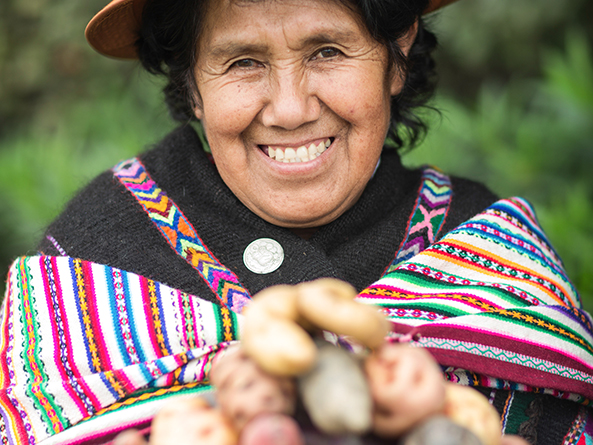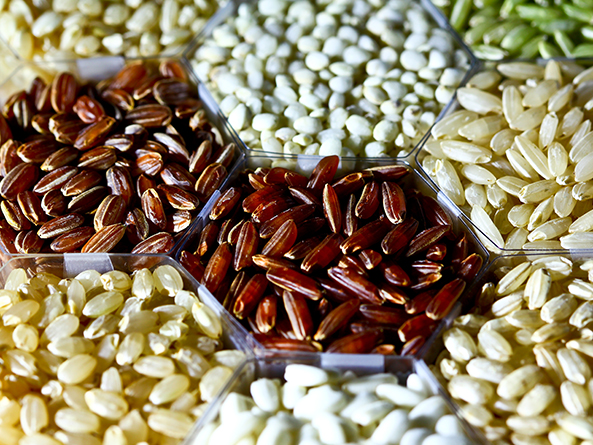IICA and the College of Agriculture and Life Sciences at Virginia Tech, USA, published the executive summary of the 2022 GA Report “Troublesome Trends and System Shocks,” explaining how sustainable agriculture is being consolidated in Latin America and the Caribbean.

San Jose, Costa Rica, September 14, 2023. Today the Inter-American Institute for Cooperation on Agriculture (IICA) and the College of Agriculture and Life Sciences of Virginia Tech University (CALS) in the United States jointly released the Spanish version of the 2022 Global Agricultural Productivity (GAP) Report Executive Summary, Tendencias Problematicas y Disrupciones del Sistema (Troublesome Trends and System Shocks). In addition, the 2023 GAP Report, to be released in the United States on October 3, will have a focus on the Latin American and Caribbean region with case studies of how sustainable agricultural productivity is taking root in selected countries.
“As a key region and guarantor of global food security, Latin American and the Caribbean have vital roles to play in providing sustainably sourced food and agriculture for a growing and hungry world,” stated Dr, Manuel Otero, Director General of IICA. “The GAP Report discusses how greater cooperation and knowledge throughout our hemisphere can help build prosperity and food security while protecting the natural resource base.”
Without swift action and long-term resolve, agrifood systems will remain vulnerable to environmental, economic, and societal shockwaves, as the data in the 2022 GAP Report demonstrate. The GAP report is produced by the College of Agriculture and Life Sciences at Virginia Tech. IICA has been a formal Technical Partner of the GAP Report since 2012.
“When agricultural productivity grows, it means we’re producing more with fewer inputs and resources, which increases agricultural sustainability,” said Tom Thompson, associate dean of CALS and director of CALS Global in the college. “Data presented in the 2022 GAP Report show that global agricultural productivity growth has slowed dramatically, and in the world’s poorer countries it is even shrinking. We urgently need to reverse this trend so that we can improve food and nutrition security, sustainability, and resilience.”
Current efforts to accelerate productivity growth are inadequate, climate change is going to have a significant impact on production, and regional inequities around the world exacerbate the problem, the report says.
Regional differences in productivity growth reveal varying areas of concern, alarm, and hope. Productivity growth is no longer the primary driver of agricultural output growth in Latin America and the Caribbean. Instead, regional producers rely on input intensification, applying more inputs, such as labor, fertilizer, and capital, per hectare of land to increase output. The 2022 GAP Report outlines how to reverse this trend and emphasizes sustainable productivity as a solution.
Governments, the private sector, research institutions, international development organizations, and civil society groups need to work collaboratively to create an enabling environment for agricultural innovation, services, and knowledge to take root. In addition, small-scale producers must have access to technology and innovation to accelerate productivity growth, improve the resilience of food security, increase incomes, and strengthen sustainability. Only then can the world be assured that its agricultural systems are sustainable and resilient to shocks.
Among the many partner cases found in the report, IICA shares the story of how rice production can be made more sustainable and productive and bring greater benefits to farmers in Chile and throughout the hemisphere by using the System of Rice Intensification (SRI).

The 2022 GAP Report offers six policy and investment recommendations to increase productivity growth:
● Invest in public agricultural R&D and extension services.
● Embrace science- and information-based technologies and practices.
● Improve the infrastructure and market access for agricultural inputs and outputs.
● Cultivate partnerships for sustainable agriculture and improved nutrition.
● Expand and improve regional and global trade.
● Reduce post-harvest loss and food waste.
Agricultural productivity growth supports resilience during system shocks. Productivity-enhancing innovations and services reduce risks for producers and support resilience from weather events, conflicts, and more. This includes drought-tolerant seed varieties, drip irrigation and practices that conserve water, cover crops, improved animal genetics, mobile phone-based extension programs, and access to financial and insurance services.
“We know how to grow agricultural productivity. The most pressing current need is for leaders to enact policies to create an enabling environment for productivity growth. That is why we’re strongly focused on getting the lessons of the GAP Report into the hands of decision- and policymakers around the world,” Thompson said.
To view the 2023 GAP Report launch, please register here.
More information:
Institutional Communication Division.
comunicacion.institucional@iica.int











